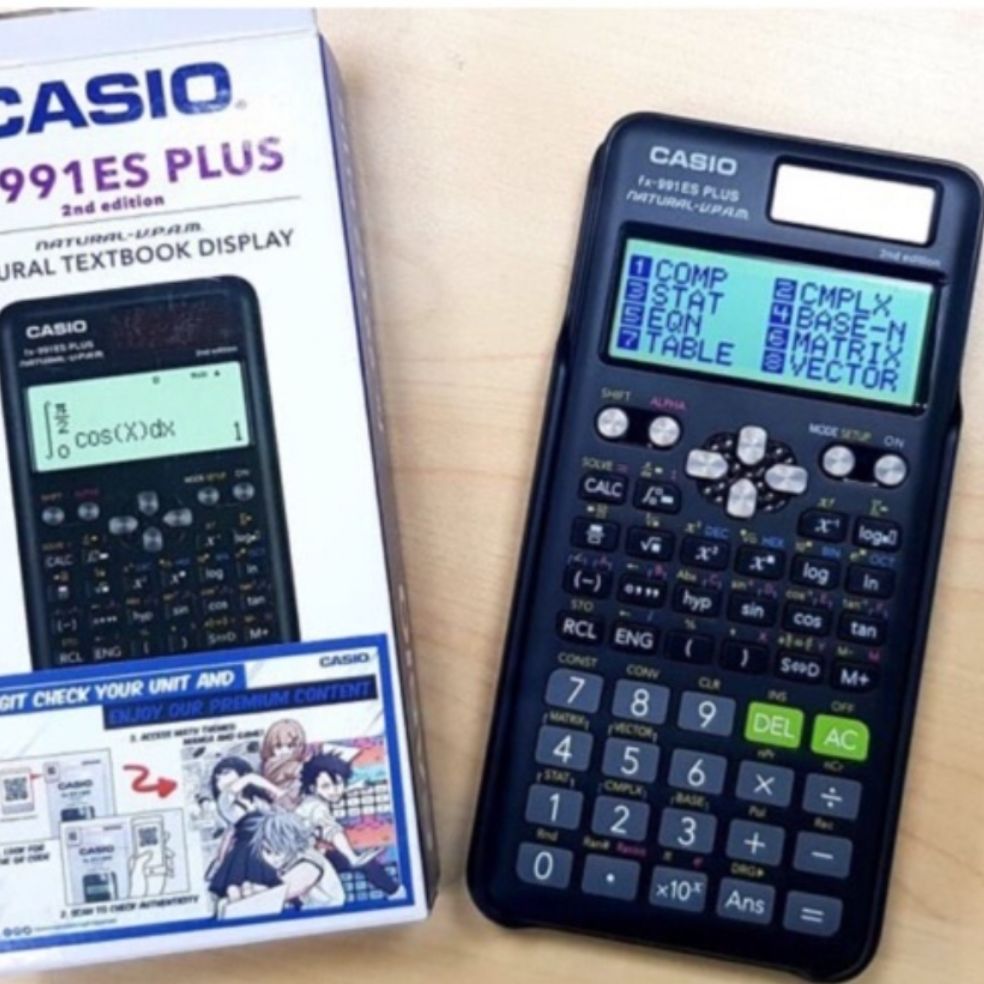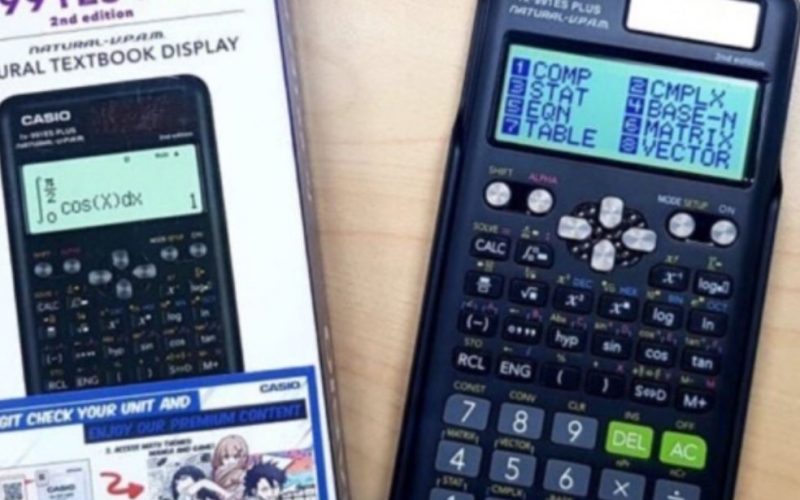When it comes to tackling GCSE Maths, having the right tools can make a world of difference. As you gear up to tackle complex mathematical concepts and equations, one tool that will become your steadfast companion is the GCSE calculator.
A GCSE calculator is a specialized tool designed to assist students in performing mathematical calculations. These calculators are permitted in GCSE Maths exams and can help simplify complex mathematical problems.
In this comprehensive guide, we will shed light on the best GCSE calculator options available to optimize your performance in GCSE Maths exams.
Now let’s look at the features GCSE calculators for Maths must possess and how to find the best.

Table of contents
- Why Do You Need a GCSE Calculator?
- What Features Should You Look for in a GCSE Calculator?
- How Do You Choose the Best Calculator for GCSE Maths?
- Best Maths GCSE Calculators
- What Are the Advantages of Using a GCSE Calculator?
- Are There Any Disadvantages to Using a GCSE Calculator?
- How Can You Maximize the Benefits of Your GCSE Calculator?
- Where Can You Buy a GCSE Calculator?
- FAQs
- Conclusion
- References
- Recommendations
Why Do You Need a GCSE Calculator?
Firstly, a calculator saves time. Instead of wrestling with long-winded calculations, your GCSE calculator can swiftly crunch numbers, leaving you more time to focus on solving tricky math problems.
Moreover, it cuts down errors. We’re all human, and humans make mistakes. With a GCSE calculator, you can minimize those pesky slip-ups, ensuring your answers are accurate.
Think about this: GCSE math can throw some pretty hefty equations your way. A calculator can help you tackle these complex problems with ease.
But it’s not just about exams; a GCSE calculator is a valuable life skill tool. It helps you with everyday tasks, like budgeting and shopping, where math plays a role.
Plus, it can be a real confidence booster. Imagine walking into that math exam with a trusty calculator in hand. It’s like having a secret weapon, a safety net for when you’re stuck.
In essence, a GCSE calculator is like your sidekick, always ready to lend a hand (or rather, a button). It’s a tool that simplifies math, minimizes errors, and boosts your confidence. So, if you’re asking why you need one, the answer is simple: it makes math easier and life more manageable.
See also: How to Get a GCSE Maths Tutor for Your Child in 2023
What Features Should You Look for in a GCSE Calculator?
When it comes to picking the right GCSE calculator, simplicity is key. You want a calculator that’s straightforward and user-friendly.
First off, big buttons are a must. You don’t want to fumble with tiny keys during your exam. Plus, a clear and easy-to-read display is essential. You should be able to glance at it and understand your calculations instantly.
Consider getting a calculator with dual power sources, like solar and battery. This way, you’re covered even if the sun decides to hide during your exam.
Now, let’s talk about algebraic entry. This means your calculator should handle equations just like you would write them. It makes solving equations a breeze.
Another handy feature is fraction calculations. Fractions can be tricky, but a calculator that can handle them effortlessly can be a lifesaver.
And don’t forget about memory functions. Being able to store intermediate results can be a game-changer when dealing with lengthy calculations.
Lastly, make sure your calculator is approved by your exam board. Check the guidelines and regulations to ensure your calculator meets their requirements.
So, in a nutshell, look for a GCSE calculator that’s user-friendly, with big buttons, a clear display, dual power sources, algebraic entry, fraction capabilities, and memory functions. With the right features, you’ll have a trusty sidekick to conquer your math exams!
See also: Top 10 Hardest GCSE Maths Questions in 2023
How Do You Choose the Best Calculator for GCSE Maths?
Selecting the right GCSE calculator doesn’t have to be a daunting task. It’s all about finding one that suits your needs. Here’s a simple guide to help you choose the best calculator for your GCSE maths journey.
Firstly, consider your budget. Affordability matters, and there are decent options for every budget.
Next, think about your exam board’s rules. They might have specific guidelines on which calculators are allowed, so be sure to check.
Now, let’s talk about ease of use. You want a calculator that doesn’t feel like a puzzle. Look for one with a straightforward layout and buttons that make sense to you.
Consider the size. A compact calculator is easy to carry around, but make sure it’s not too small that you struggle to press the buttons.
Think about the functions you need. If you’re tackling advanced maths, you might want a calculator with more features. If not, a basic model will do just fine.
Ask for recommendations from your teachers or peers. They might have insights or preferences that could help you make a decision.
Lastly, read online reviews. They can give you a sense of what other students like you are using and what works well for them.
In the end, choosing the best calculator for GCSE maths is about finding one that’s affordable, allowed by your exam board, easy to use, the right size, with the functions you need, and informed by recommendations and reviews. With these considerations, you’ll be well-equipped to make the right choice.
See also: Are GCSEs (Actually) Hard? Top Tips for Passing the Most Difficult GCSE Exam Papers
Best Maths GCSE Calculators
When it comes to choosing a reliable GCSE calculator, you’ll find several trusted brands that offer calculators suitable for your needs. Here are some top GCSE calculator brands to consider:
- Casio: Casio’s scientific calculators, like the Casio FX-991EX, Casio FX-85GTX or FX-83GTX and Casio FX-83GTX, are highly regarded for their advanced functions and ease of use.
- Texas Instruments (TI): TI is renowned for its calculators, especially the TI-84 series and Texas Instruments TI-30X Pro Multiview, which is favored for its versatility and features.
- Sharp: Sharp calculators are known for their simplicity and durability, making them a solid choice for GCSE students.
- HP (Hewlett-Packard): HP offers calculators known for their quality and performance. They may be less common but can be a reliable option.
- CITIZEN: CITIZEN provides affordable and straightforward calculators suitable for basic GCSE math tasks.
- Canon: Canon offers calculators with clear displays and essential functions, making them suitable for GCSE math exams.
- Aurora: Aurora calculators are budget-friendly options with basic features, ideal for students looking for simplicity.
See also: What is the Best A Level Calculator For Maths & Further Maths?
What Are the Advantages of Using a GCSE Calculator?
Using a GCSE calculator comes with several advantages that can make your math journey smoother. Let’s dive into why having one can be a real game-changer.
Firstly, it’s all about speed and efficiency. A calculator can zip through calculations much faster than you can with a pencil and paper. This means you can tackle more problems in less time.
Additionally, it minimizes errors. Math can get tricky, and even a small slip can throw off your entire answer. With a calculator, you’re less likely to make mistakes in your calculations.
Another advantage is complex problem-solving. GCSE math often throws some tough equations your way. A calculator can help you handle these without breaking a sweat.
But it’s not just about exams; a GCSE calculator can be a handy tool in everyday life. Whether you’re budgeting, shopping, or planning a trip, having a calculator can make math-related tasks a breeze.
Furthermore, it boosts confidence. Knowing you have a calculator at your side can give you a sense of security during exams. It’s like having a safety net for those challenging questions.
In essence, using a GCSE calculator is all about speed, accuracy, handling complex problems, everyday convenience, and a confidence boost. It’s a tool that simplifies math and makes life easier both in and out of the classroom.
Are There Any Disadvantages to Using a GCSE Calculator?
While GCSE calculators offer numerous benefits, there are a few downsides to consider.
Firstly, over-reliance on a calculator can hinder your mental math skills. If you become too dependent, you might struggle to perform simple calculations in your head, which are skills that can be handy in daily life.
Moreover, there’s the risk of calculator errors. While calculators are generally accurate, they’re not infallible. If you input the wrong numbers or misunderstand the functions, you could end up with incorrect results.
Another drawback is examination rules. Some exams have strict regulations on calculator use, and if you’re too reliant on it, you might find yourself at a disadvantage in exams that limit calculator usage.
Additionally, good calculators can be costly. If you’re on a tight budget, investing in a high-end calculator might not be feasible, and cheaper models might lack some useful features.
Lastly, it’s worth noting that not all professions rely on calculators to the same extent. Overemphasis on calculator use during your GCSE years might not prepare you adequately for fields where mental math and problem-solving skills are more critical.
In essence, while GCSE calculators offer many advantages, including speed and accuracy, they can potentially diminish mental math skills, be prone to errors, clash with exam regulations, come with a price tag, and might not be universally relevant in all future endeavors. Balancing calculator use with the development of fundamental math skills is key to success.
How Can You Maximize the Benefits of Your GCSE Calculator?
Here is how you can make the most out of your GCSE calculator to ace your math exams and daily tasks.
Firstly, practice regularly. Get comfortable with your calculator by using it for various calculations. Familiarity is key to efficiency.
When tackling complex problems, break them down step by step. Your calculator can handle the heavy lifting, but it’s essential to understand the process. This way, you can verify your results and learn from the calculations.
Learn the functions of your calculator. Explore its features and understand how to access different operations efficiently. Most calculators come with user manuals that can be handy for this.
Consider working with real-world problems. Apply your calculator skills to everyday situations, like budgeting or recipe conversions. This practical experience will reinforce your understanding.
Don’t forget to use your calculator as a learning tool. It’s not just for exams but also for expanding your mathematical knowledge. Experiment with it to grasp new concepts and explore mathematical relationships.
Finally, seek guidance from teachers or peers if you encounter challenges. They can provide valuable tips and tricks for using your calculator effectively.
In essence, maximizing the benefits of your GCSE calculator involves regular practice, breaking problems into steps, understanding its functions, applying it to real-life situations, using it as a learning tool, and seeking guidance when needed. With these strategies, your calculator can become a valuable ally in your mathematical journey.
See also: How to Get a 9 in GCSE Maths in Less than 2 Months
Where Can You Buy a GCSE Calculator?
ou might be wondering where to get your hands on a GCSE calculator. No worries, it’s quite accessible!
- Online Retailers: One of the easiest options is to hop online. Websites like Amazon, eBay, and even dedicated educational supply stores have a wide variety of GCSE calculators to choose from. You can read reviews and compare prices, making it super convenient.
- Electronics Stores: If you prefer an in-person shopping experience, you can visit your local electronics or office supply store. They often have a section dedicated to calculators, including models suitable for GCSE math.
- Educational Supply Shops: Don’t forget about specialized educational supply shops. These stores are likely to carry GCSE calculators and can offer expert advice on choosing the right one.
- School or College Bookstores: If you’re in school or college, your campus bookstore may also have calculators available. This can be handy for ensuring you choose a model that complies with your institution’s guidelines.
- Online Marketplaces: Besides major online retailers, consider checking out educational marketplaces or forums where students might sell or exchange calculators they no longer need.
Remember, before you make a purchase, double-check the specifications and features to ensure it meets your GCSE requirements. With these options, finding the perfect GCSE calculator should be a breeze!
FAQs
You’ll need a scientific calculator for GCSE Maths. Scientific calculators handle standard arithmetic and then add extra functionality like cube roots, powers, statistics, trigonometry, and more. They are also very useful for other subjects such as Science, so one model covers all your subjects.
Students should be aware that advanced scientific calculators such as the FX991-EX and the Casio Graphic CG-50 are allowed in all of our examinations, including GCSE and International GCSE.
The Casio fx-991 CW is Casio’s most advanced scientific calculator with 540 + mathematical functions. The large Natural Textbook Display shows mathematical expressions like roots and fractions as they appear in your textbooks which increases comprehension because results are easier to understand.
Conclusion
Choosing the best GCSE calculator for your exams is a crucial step in your academic journey. By considering the features, affordability, and exam board guidelines, you can make an informed decision.
Remember to practice with your calculator to ensure you’re well-prepared on exam day. With the right calculator and adequate preparation, you’ll be on your way to success in your GCSE Maths exams.
References
- Insights.gostudent.org – Best Calculators for GCSE Maths in 2022/2023
- Length Converter – Best Student Quick Conversion Platform Online
- Thinkstudent.co.uk – What is the Best Calculator For GCSE Maths?
Recommendations
- How to Get a GCSE Maths Tutor for Your Child in 2023Top 10 Hardest GCSE Maths Questions in 2023
- Top 10 Best GCSE Maths Revision Websites | 2023 Ranking
- How to Get a 9 in GCSE Maths in Less than 2 Months
- How Many Marks Is It To Pass GCSE Maths In 2023?
- Are GCSEs (Actually) Hard? Top Tips for Passing the Most Difficult GCSE Exam Papers
- What Does Mark Equivalent Mean on GCSE Exam Results
- What is the Best A Level Calculator For Maths & Further Maths?






